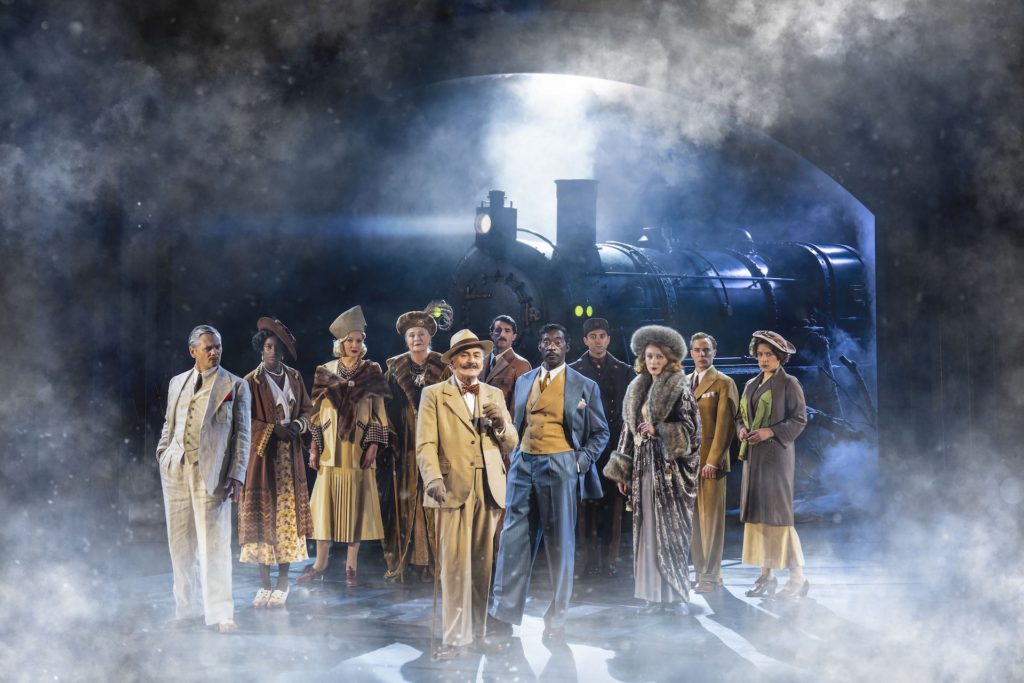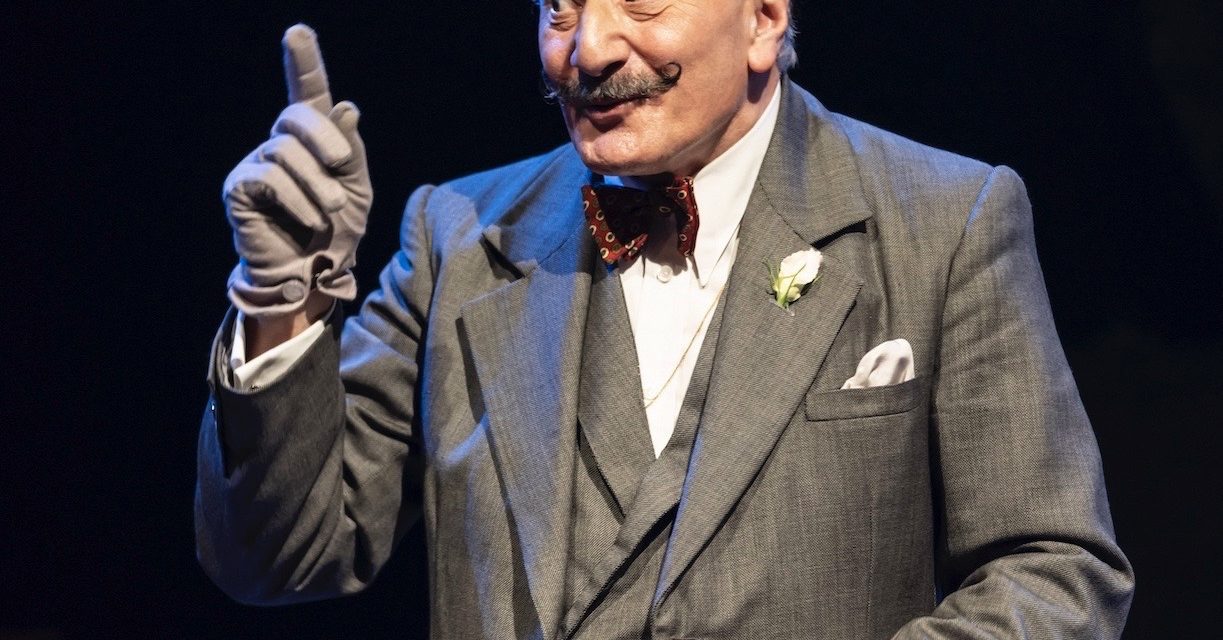
9 – 25 June
Newcomers to this tale of a gruesome murder on a luxury train will be intrigued by the ingenuity of the plot and its particularly surprising denouement, but old hands will also find a great deal to enjoy in this splendid production, which is directed with great flair by Jonathan Church. The chances are that you are very familiar with Murder On The Orient Express, for it is Agatha Christie’s best-selling novel, and there have been many starry film and TV adaptations. Even more familiar, of course, is Hercule Poirot, one of those rare fictional characters who is instantly recognisable, even to those who have only the flimsiest knowledge of the stories in which he appears. Making the most of Ken Ludwig’s witty script, Henry Goodman rises to the challenge of making this role his own. He clearly conveys Poirot’s powerful intellect and moral sensibility, while injecting some delightful touches of comedy. This dapper, self-aware Poirot has mannerisms that speak of someone who is gleefully entertained by his own cleverness, yet underlying this egotism lies a darker seriousness of purpose.
Goodman is the undoubted star of the show, but he has a close rival in Robert Jones’s set design. Initially this depicts a dark railway tunnel leading to impenetrable blackness, but this swiftly transforms into a bright, colourful restaurant in Istanbul. Later there is a most impressive steam locomotive, and the very clever use of travelling platforms that serve as a variety of locations, including a dining car and sleeping compartments. Mark Henderson’s lighting design adds atmosphere, and is particularly effective in a series of flashbacks seen during Poirot’s final interrogation of his fellow passengers. Adrian Sutton’s cinematic music score adds emotional heft, and there are thrilling sound effects from Christopher Shutt.
Those multinational fellow passengers are performed by a strong supporting ensemble, with Sara Stewart outstanding as the brazenly flirty, brashly blonde Helen Hubbard. She has some of the best lines: ‘You remind me of one of my husbands’- ‘Oh, which one?’- ‘The next!’ Her loud, swooping Midwestern drawl is just one of many accents that feature, for other characters are French, Scottish, Russian and Swedish. In the first half these roles are sketched in rather broadly, and the emphasis is upon comedy. The character who becomes the murder victim is portrayed with an exaggerated nastiness that borders on the cartoonish, which tends to negate any real sense of shock at his demise. Though there had been much that was entertaining, by the interval I was beginning to find it all too lightweight in tone, and all those foreign accents were becoming just a little tedious.
Thankfully, the second half is far more substantial. The mood becomes distinctly darker, and Poirot finds himself asking difficult questions that go far beyond the mere business of identifying the murderer. His interrogation of the passengers becomes an interrogation of himself, of his own motives, and a questioning of just what is meant by words like ‘law’ and ‘justice’. Goodman brilliantly depicts a man wrestling with the thorny problem that so bedevilled Hamlet; what is a good man to do in a world of wickedness? It can be a lonely business to stick unwaveringly to the moral path. The play ends with Poirot seen as a dark, solitary silhouette, disappearing down that black tunnel.
★★★★☆ Mike Whitton 14th June 2022
Photo credit: Johan Persson


